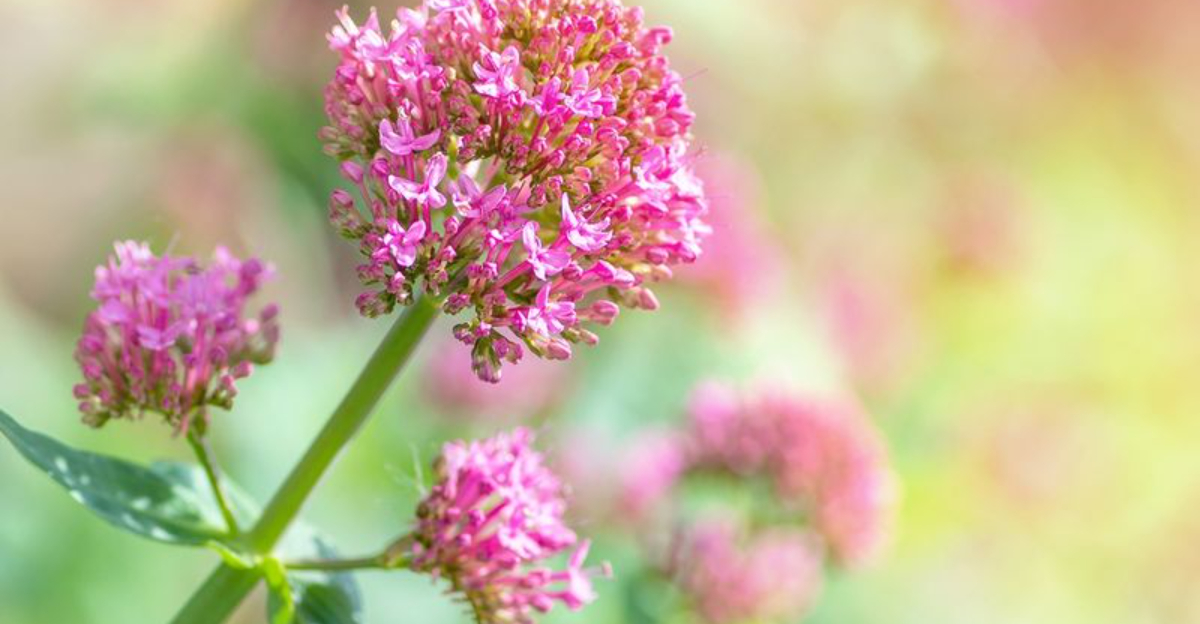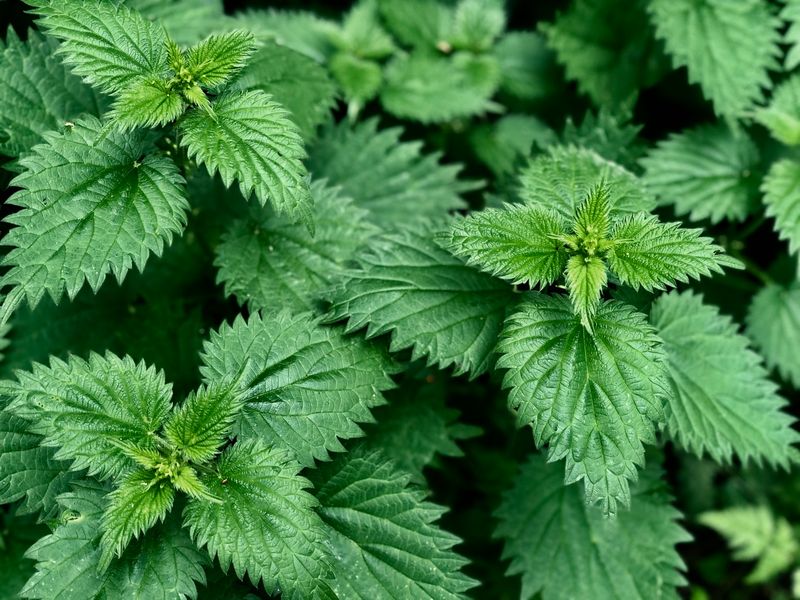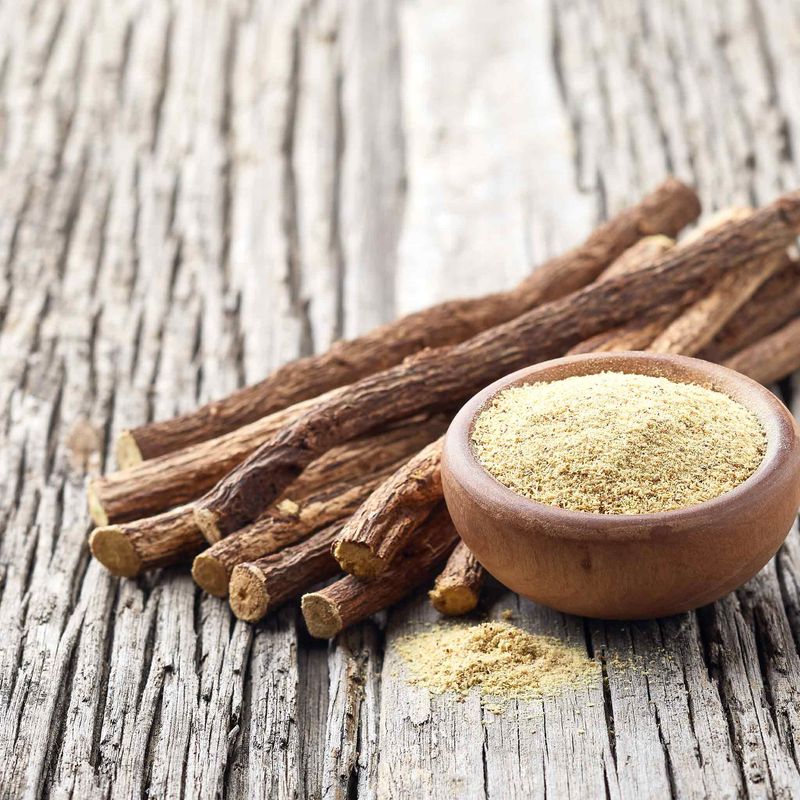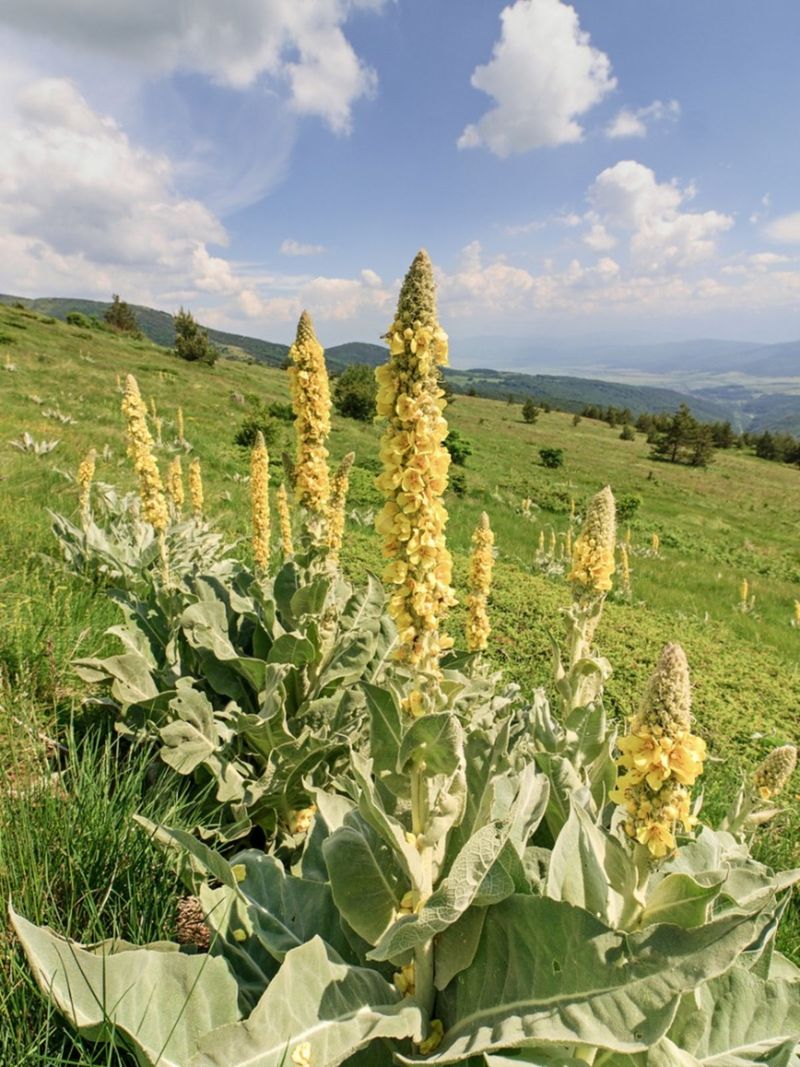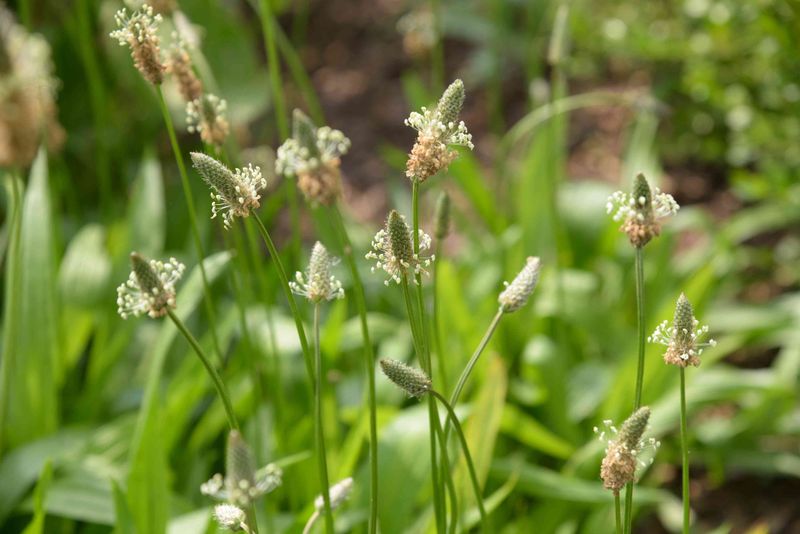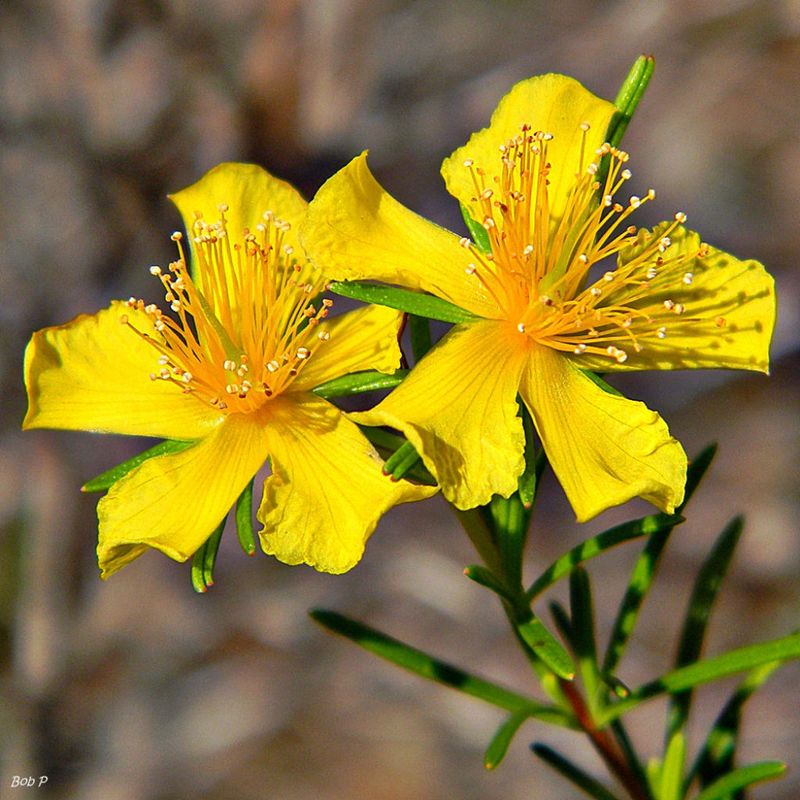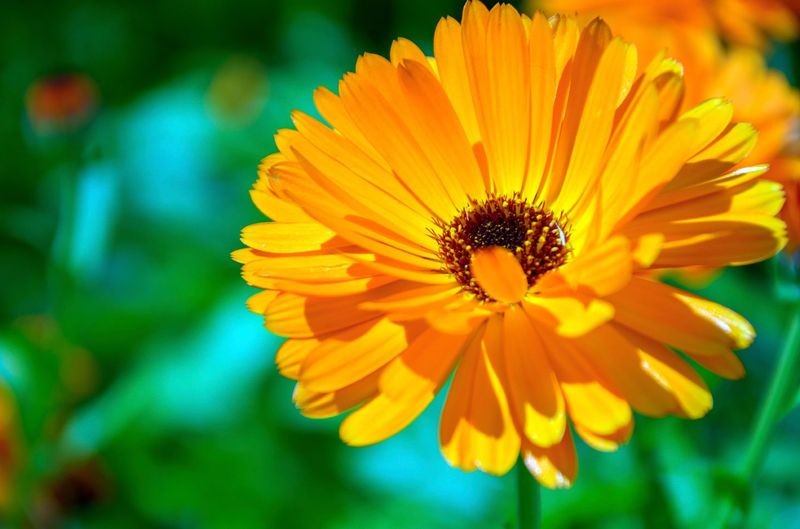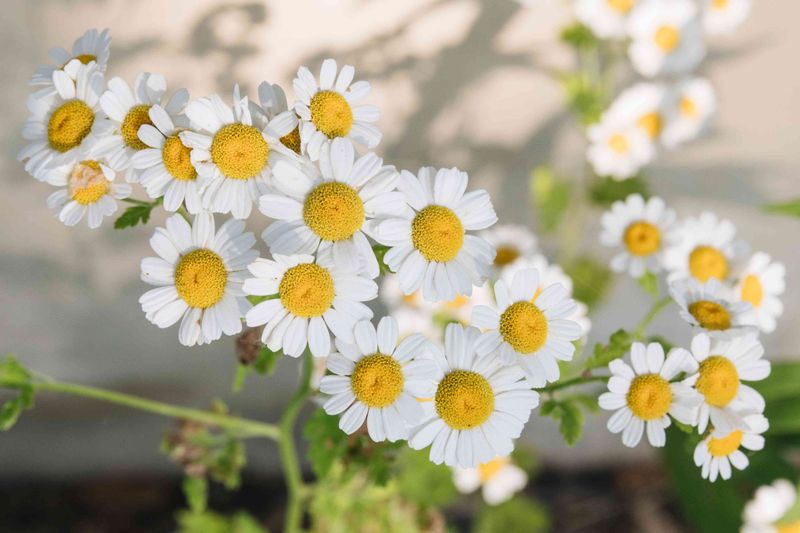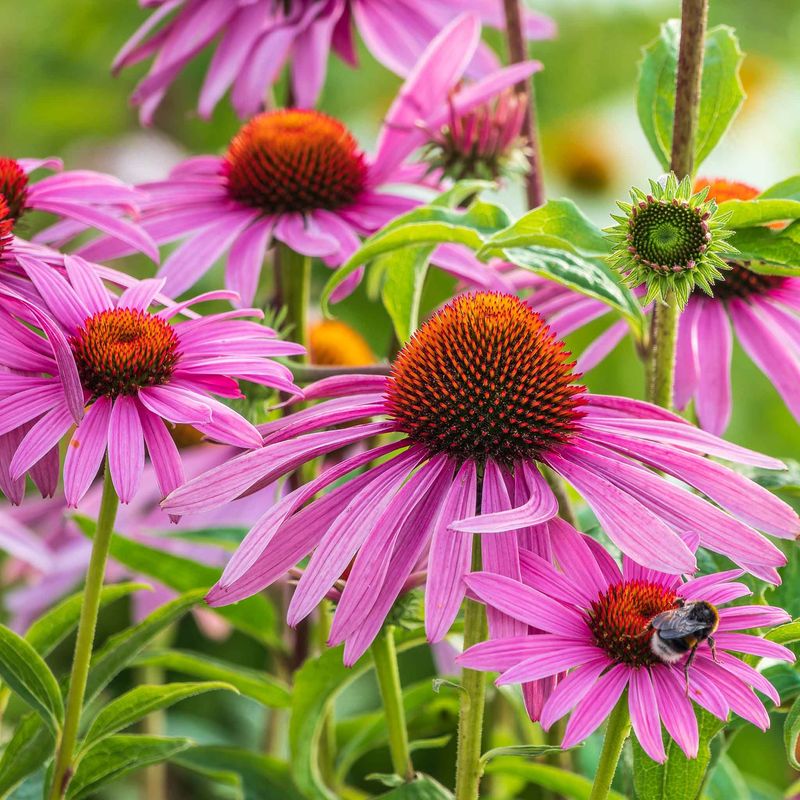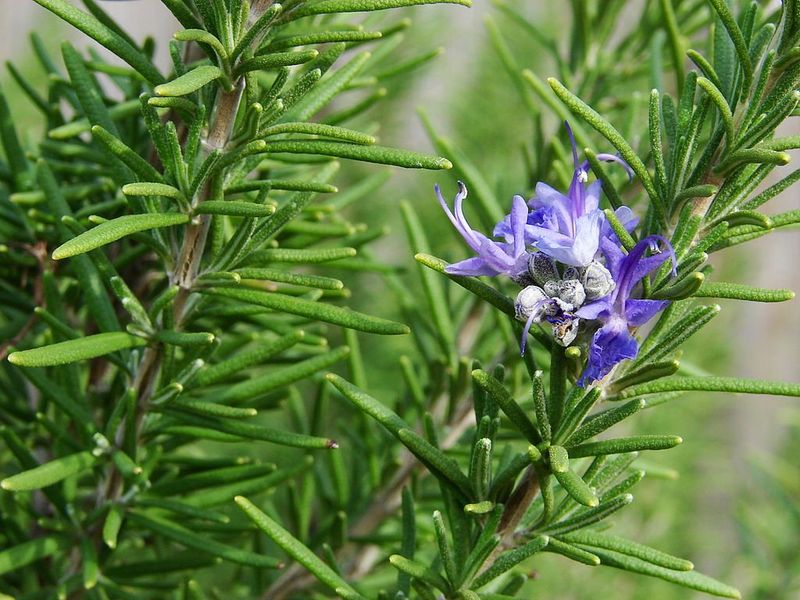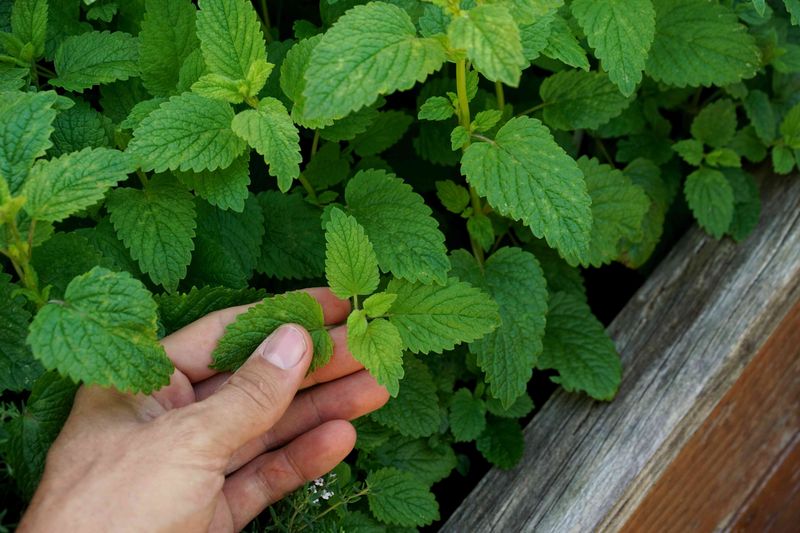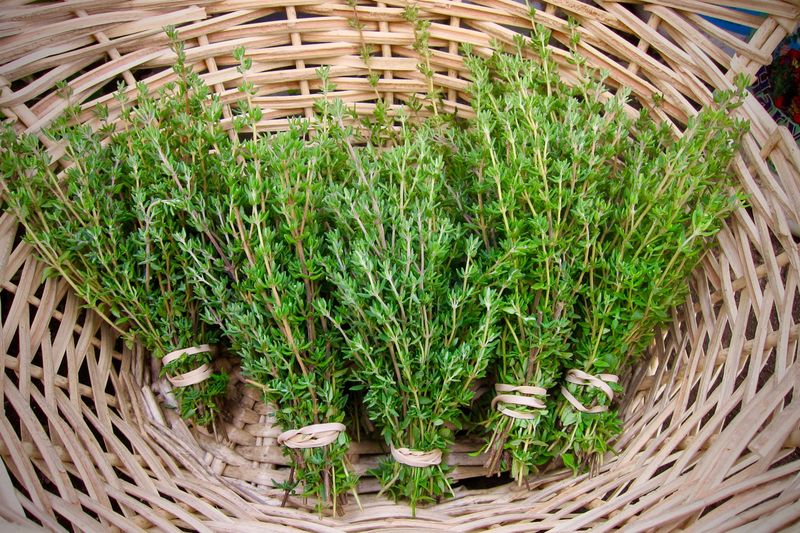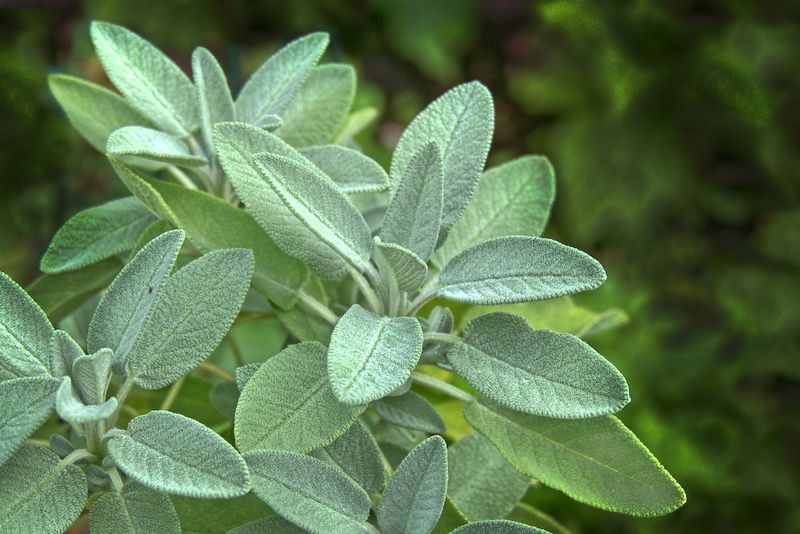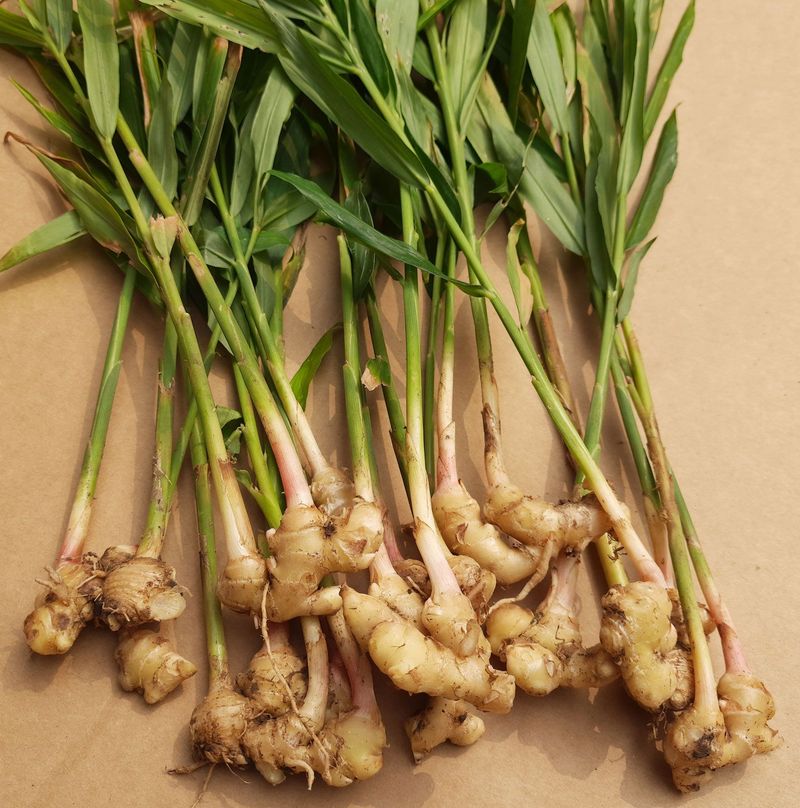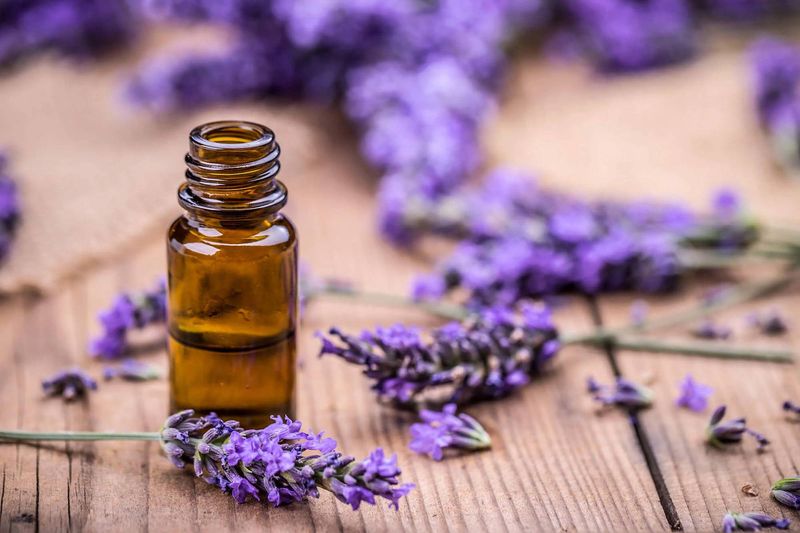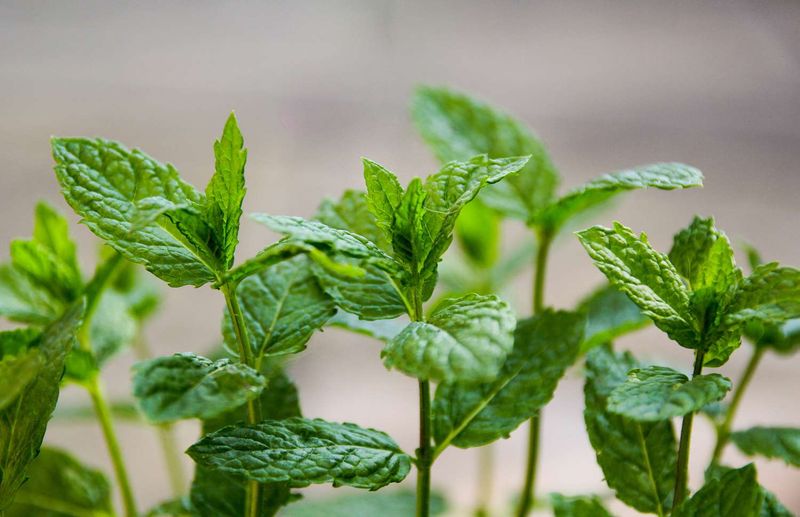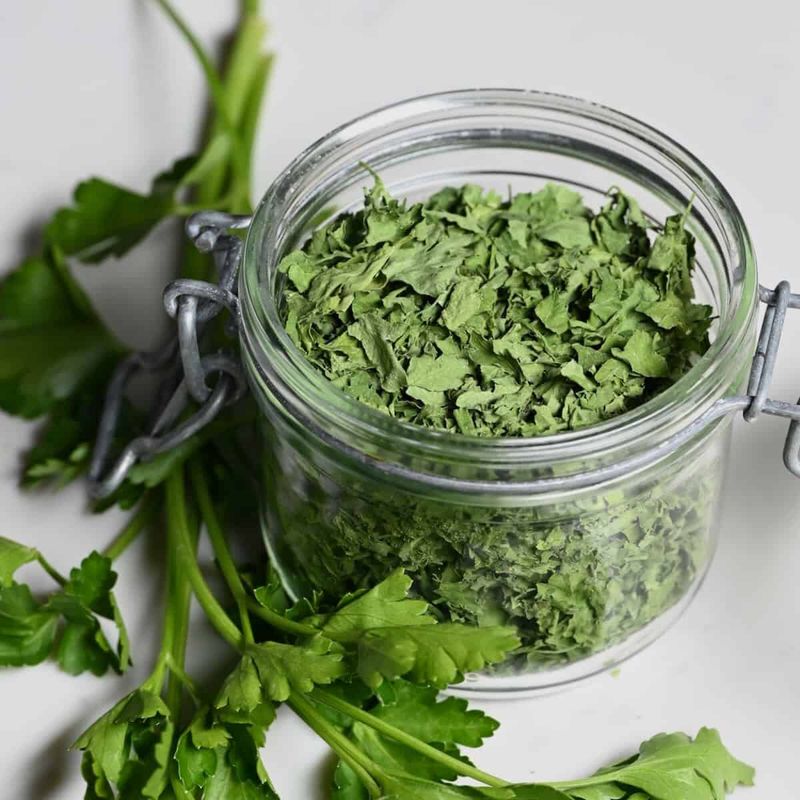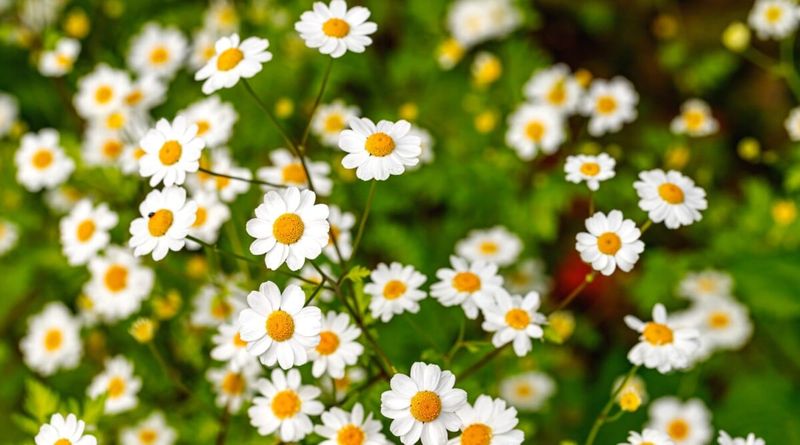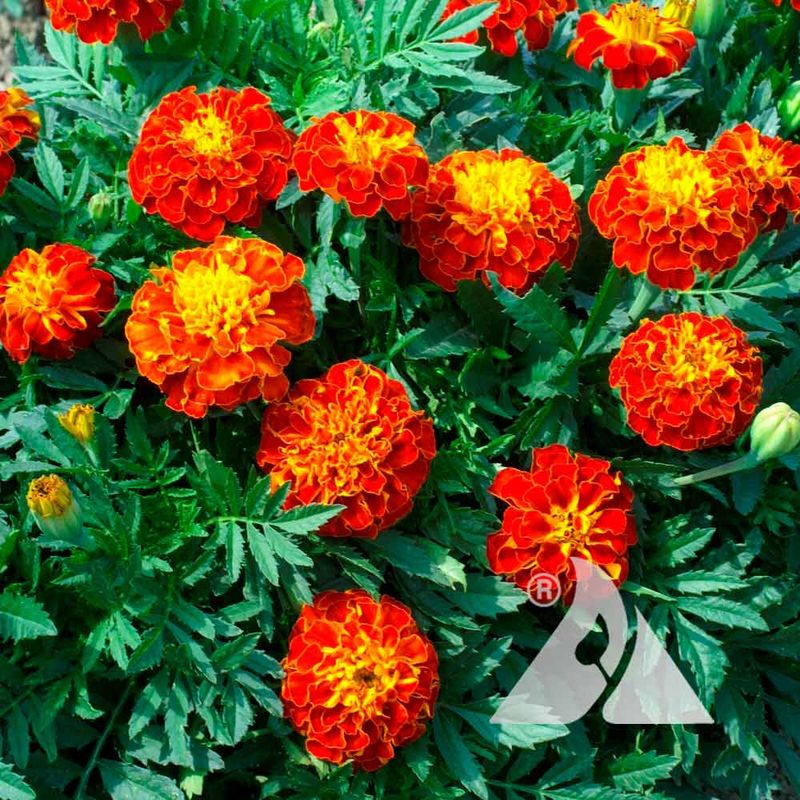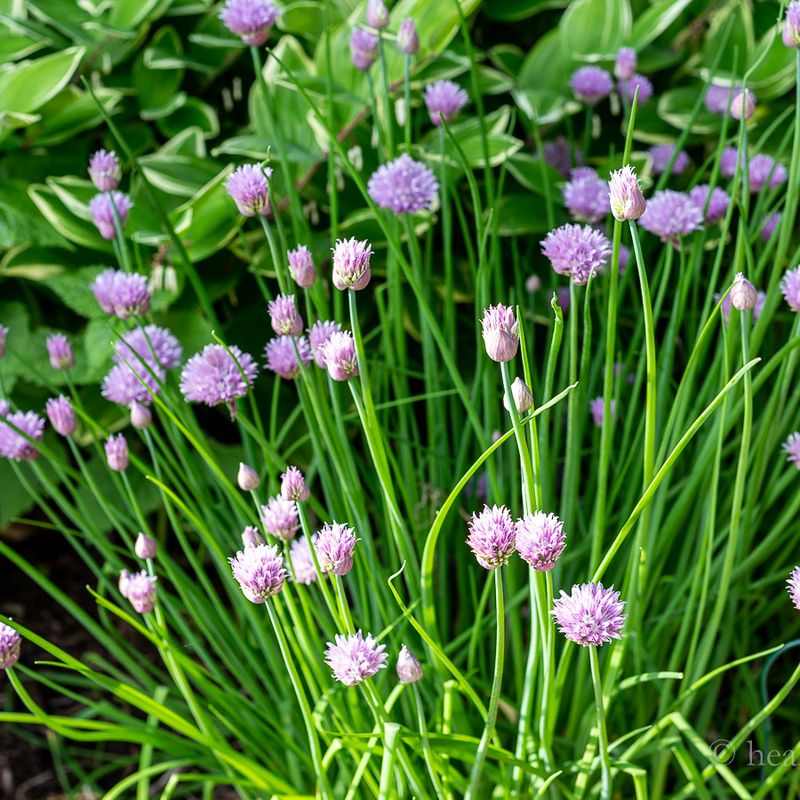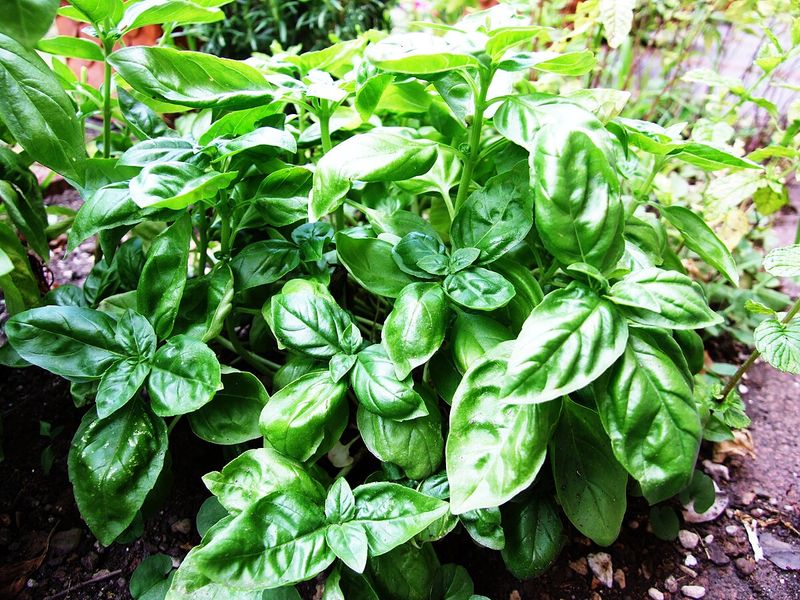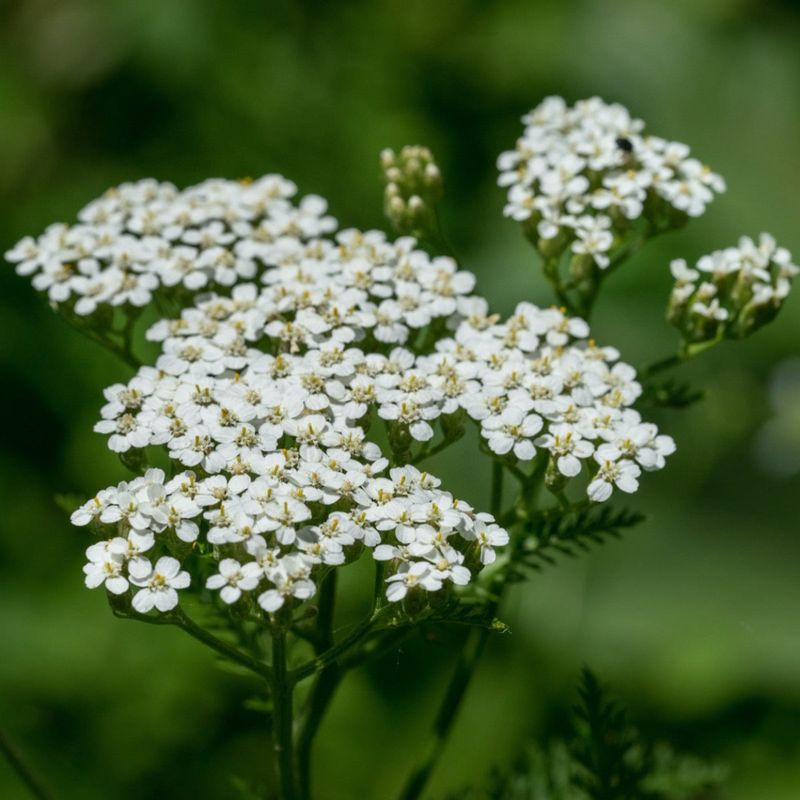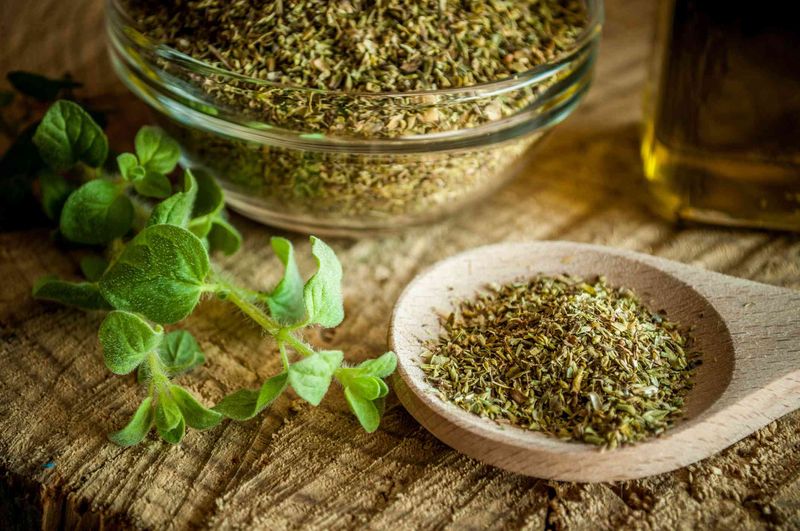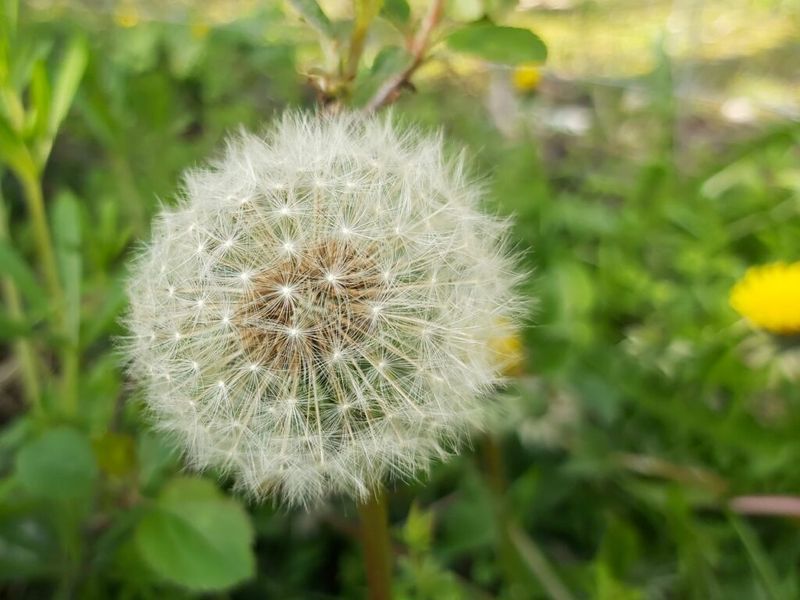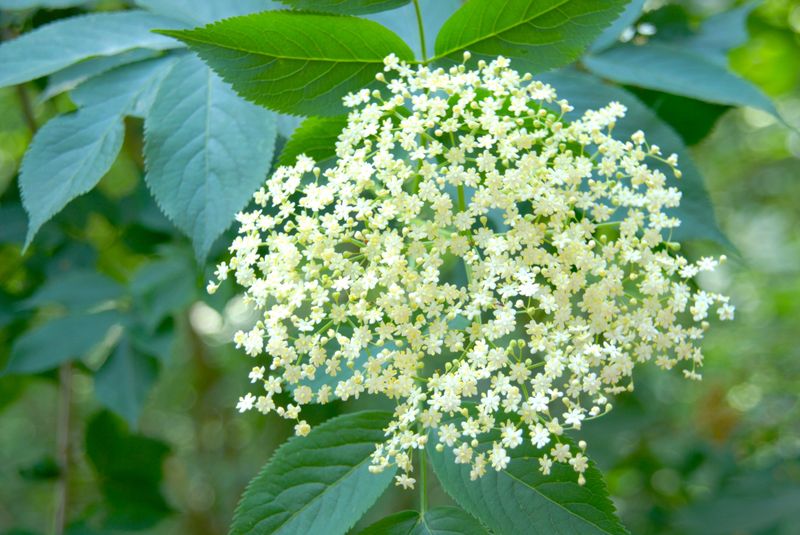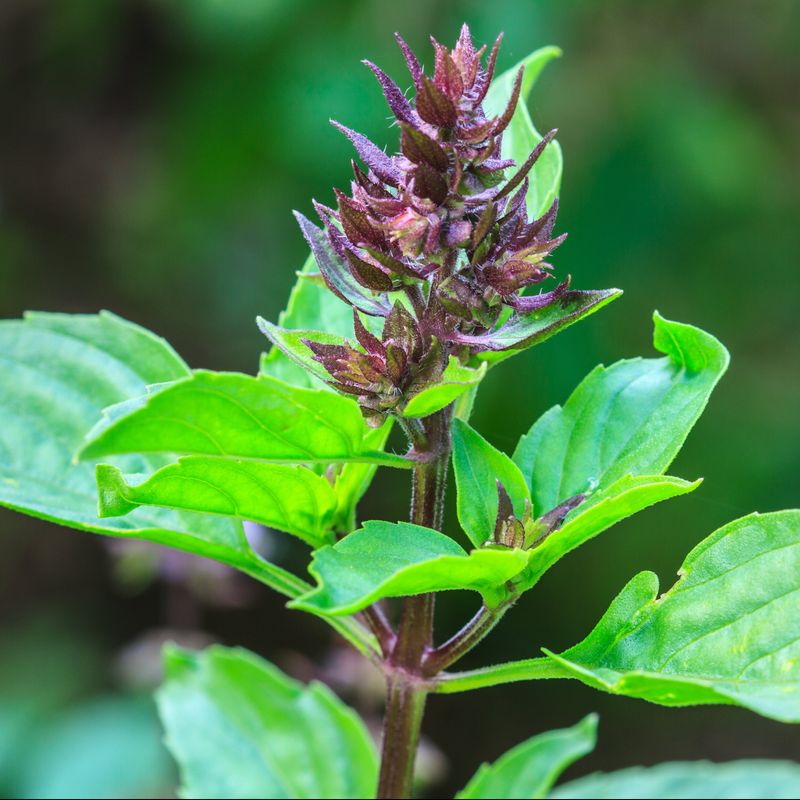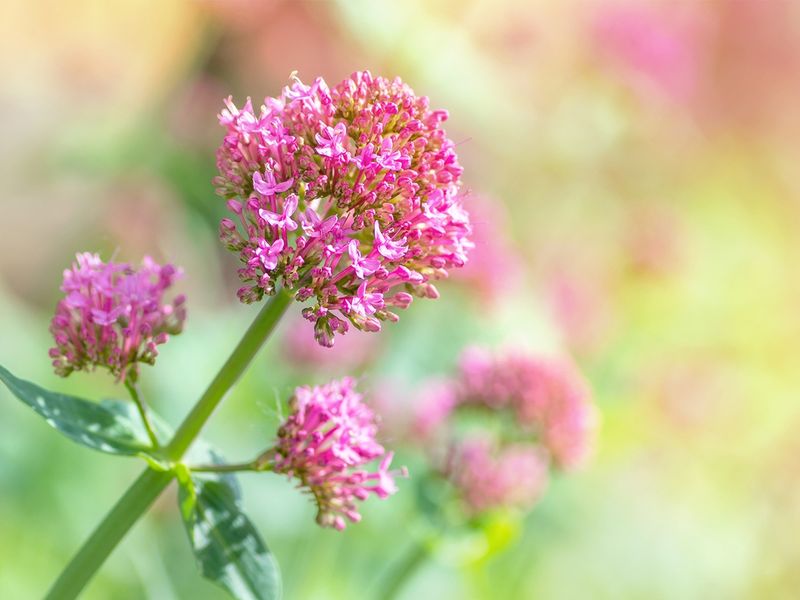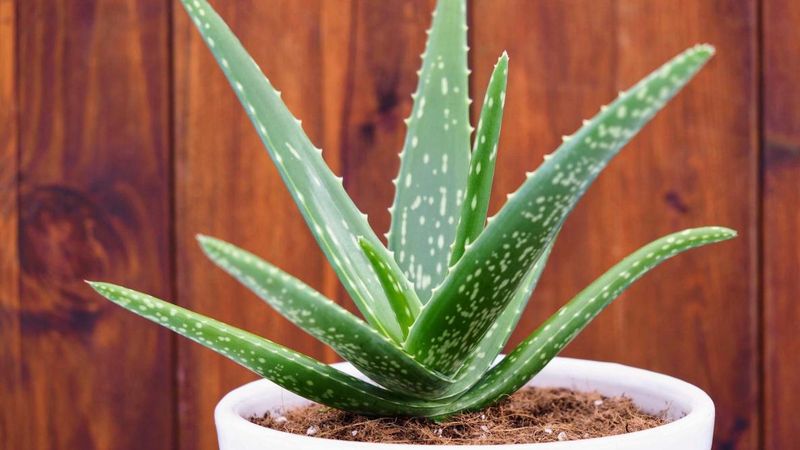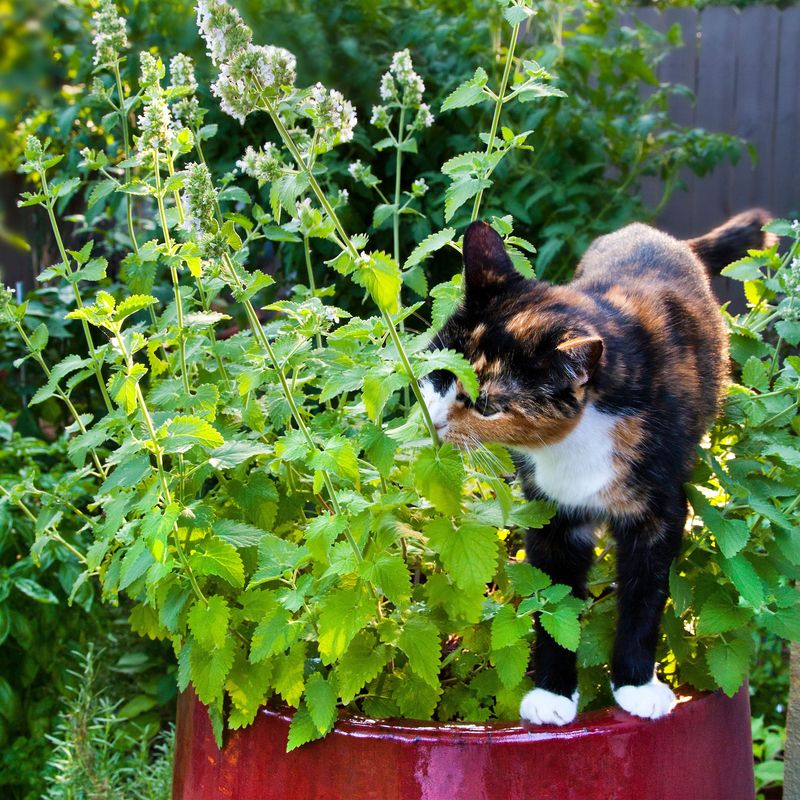Experience nature’s wonder by cultivating your very own healing garden, whether it’s in a spacious backyard or on a charming balcony. These plants are simple to nurture and offer remarkable therapeutic benefits.
Explore our curated list of 28 plants that can turn any space into a verdant sanctuary and serve as your personal herbal remedy cabinet.
1. Nettle
Nettle, often seen as a pesky weed, is a powerhouse of nutrients. Its jagged leaves can be brewed into a tea that aids digestion and boosts iron levels. Handle with care, as its tiny hairs can sting.
Incorporate nettle into your diet for a natural energy lift. Its rich mineral content supports overall wellbeing. Nettle infusion can also be used as a hair rinse for shinier locks.
Bringing nettle indoors might challenge traditional aesthetics, but its health benefits make it a worthy addition to your healing plant collection.
2. Licorice Root
Licorice Root is more than just a candy flavor; it’s a soothing remedy for sore throats and digestive woes. This sweet root can be crafted into a delicious tea that coats the throat.
Explore its anti-inflammatory properties by using it as a natural remedy for minor irritations. Licorice root also supports adrenal health, making it a valuable addition to stress relief routines.
Positioning licorice root within your healing oasis adds an unexpected twist, blending traditional herbal wisdom with modern wellness practices.
3. Mullein
Mullein is a striking plant known for its tall flower spikes and soft, fuzzy leaves. Traditionally used to support respiratory health, its leaves can be brewed into a soothing herbal tea.
Embrace mullein’s gentle nature by utilizing its extracts in calming cough syrups. Its demulcent properties offer relief during cold seasons.
With its imposing presence, mullein adds not just beauty but a touch of healing magic to any home. Allow its natural grace to become a part of your plant sanctuary.
4. Plantain
Plantain, often mistaken for a common weed, is a versatile healer. Its broad leaves can be applied to minor wounds and insect bites for natural relief.
Create a simple poultice by crushing its leaves to soothe skin irritations. Its presence in your home garden symbolizes resilience and adaptability.
Incorporate plantain into your healing oasis for both its medicinal properties and its ability to thrive in various conditions. Its robust nature and healing potential make it an intriguing addition to your plant collection.
5. St. John’s Wort
St. John’s Wort is renowned for its use in alleviating mild depression and anxiety. Its bright yellow flowers are a garden highlight.
It thrives in well-drained soil with plenty of sunlight, suitable for garden beds or pots. This plant is both attractive and functional.
St. John’s Wort’s medicinal properties have been appreciated for centuries, making it a valuable plant for mental wellness. Cultivate it for a touch of sunshine and serenity.
6. Calendula
Calendula, often called pot marigold, is valued for its skin-healing properties. Its vibrant blooms cheer up any garden space.
This plant prefers well-drained soil and a sunny location, thriving in gardens and pots alike. Its petals are commonly used in ointments and teas.
Calendula’s bright flowers not only provide beauty but also offer soothing benefits for the skin. Incorporate it for both visual and therapeutic appeal.
7. Chamomile
Chamomile flowers are known for their gentle, calming properties, often brewed into teas for relaxation.
This plant grows well in well-drained soil with ample sunlight, making it suitable for balconies and gardens alike.
The dainty white and yellow blooms add charm and are easily harvested for homemade teas. Chamomile’s soothing benefits make it a perfect addition to your healing plant collection.
8. Echinacea
Echinacea, or coneflower, is famed for boosting the immune system. Its bright pink petals are not only eye-catching but also attract butterflies.
This plant thrives in sunny spots with well-drained soil. Its hardiness makes it a garden favorite.
Echinacea’s medicinal properties come from its roots and leaves, often used in herbal remedies. Grow echinacea for a vibrant and health-boosting addition to your garden.
9. Rosemary
Rosemary is a fragrant herb that enhances culinary dishes and offers health benefits like improved digestion.
It prefers sunny locations and well-drained soil, making it suitable for pots on a balcony or in a garden.
The aromatic leaves can be used fresh or dried, adding a delightful scent to your space. Embrace rosemary for its culinary versatility and aromatic charm.
10. Lemon Balm
Lemon balm is treasured for its lemony scent and calming properties, often used in teas to reduce stress.
It grows well in both sun and partial shade, making it versatile for different garden spots. This plant’s lush green leaves can be harvested frequently.
Lemon balm’s delightful aroma and ease of growth make it a wonderful addition to any healing garden. Its calming effects are perfect for creating a tranquil space.
11. Thyme
Thyme is a versatile herb known for its antiseptic properties, often used in cooking and natural remedies.
It thrives in well-drained soil and sunny areas, making it ideal for gardens and balconies. Thyme’s small, fragrant leaves are robust and easy to harvest.
Adding thyme to your garden not only boosts flavor in your kitchen but also contributes to your home’s natural pharmacy. Its easy growth and maintenance are perfect for any gardener.
12. Sage
Sage is cherished for its culinary uses and health benefits, including improving memory and digestion.
It enjoys sunny spots and well-drained soil, thriving in pots or garden beds. Sage’s robust leaves are aromatic and flavorful.
Incorporating sage into your space adds both culinary depth and health benefits. Its easy growth and maintenance make it a staple for any herb garden.
13. Ginger
Ginger is celebrated for its spicy roots, used in cooking and traditional medicine for digestion and inflammation.
This plant prefers warm, humid environments, suitable for pots indoors or sheltered garden spots. Its leaves are lush and green.
Incorporate ginger into your space for its culinary and health benefits. Whether used fresh or dried, ginger adds zest and wellness to your home garden.
14. Lavender
Lavender is celebrated for its calming scent, often used in aromatherapy to relieve stress.
This fragrant plant prefers well-drained soil and plenty of sunlight, making it ideal for a sunny balcony or garden corner.
Beyond its soothing aroma, lavender’s purple blooms attract pollinators like bees, enhancing your garden’s ecosystem. Incorporate lavender into your garden for a touch of tranquility and beauty.
15. Peppermint
Peppermint boasts a refreshing aroma and flavor, often used in teas and culinary dishes.
It thrives in moist, shaded areas, making it a versatile addition to any garden space. Its rapid growth ensures a steady supply of leaves.
Peppermint’s invigorating scent keeps pests away, and its leaves can be harvested regularly for fresh use. Embrace peppermint for its dual role in flavor and function.
16. Parsley
Parsley is a versatile herb known for its culinary uses and health benefits, such as vitamin C and iron.
It grows well in sunny or partially shaded areas, making it adaptable for various garden spots. Parsley’s fresh leaves can be harvested regularly.
Adding parsley to your garden offers culinary versatility and nutritional benefits. Its ease of cultivation makes it a favorite among gardeners and chefs alike.
17. Feverfew
Feverfew is traditionally used to relieve migraines and headaches, thanks to its medicinal properties.
This resilient plant thrives in sunny, well-drained areas, making it suitable for gardens or containers. Its daisy-like flowers add charm to any space.
Incorporate feverfew into your garden for its beauty and therapeutic benefits. Its easy growth makes it accessible for beginner gardeners.
18. Marigold
Marigold is not only a vibrant addition to any garden but also offers healing benefits for the skin.
This plant thrives in well-drained soil and sunny locations, making it ideal for garden borders or pots. Marigold’s petals are often used in lotions and creams.
Besides its therapeutic uses, marigold attracts beneficial insects, enriching the garden ecosystem. Its beauty and functionality make it a must-have for garden enthusiasts.
19. Chives
Chives are a versatile herb used in culinary dishes, offering a mild onion flavor and health benefits like vitamin C.
They thrive in sunny spots with well-drained soil, perfect for garden borders or pots. Their purple flowers are both attractive and edible.
Add chives to your garden for culinary diversity and nutritional value. Their easy growth and decorative appeal make them a delightful addition.
20. Basil
Basil is a popular herb known for its aromatic leaves, widely used in cooking, particularly in Italian dishes.
It prefers warm, sunny locations and well-drained soil, perfect for gardens and indoor pots. Basil’s leaves can be harvested regularly for fresh use.
Beyond its culinary appeal, basil offers health benefits like anti-inflammatory properties. Adding basil to your plant collection enriches your kitchen and promotes wellness.
21. Yarrow
Yarrow is esteemed for its medicinal properties, including wound healing and reducing inflammation.
This hardy plant thrives in sunny locations with well-drained soil, perfect for garden borders or wild patches. Its clusters of tiny flowers add delicate beauty.
Incorporate yarrow into your garden for its therapeutic benefits and charming appearance. Its resilience makes it a reliable choice for any healing garden.
22. Oregano
Oregano is a beloved herb known for its culinary uses, especially in Mediterranean dishes, and its antioxidant properties.
It prefers sunny spots and well-drained soil, thriving in gardens and pots alike. Oregano’s leaves can be harvested frequently.
Beyond its flavor, oregano offers health benefits like boosting the immune system. Incorporate oregano into your garden for its versatility and health-enhancing properties.
23. Dandelion
Dandelions are often overlooked, but they offer numerous health benefits, including aiding digestion and detoxification.
These hardy plants thrive in various soils, making them easy to grow in gardens or pots. Their yellow flowers are cheerful and plentiful.
Embrace dandelions for their resilience and health benefits. Whether in salads or teas, dandelions provide a valuable addition to your healing plant collection.
24. Elderflower
Elderflower is renowned for its use in syrups and teas, offering anti-inflammatory and antioxidant benefits.
This plant thrives in sunny or partially shaded areas, making it suitable for larger gardens. Its white blossoms are visually appealing.
Incorporate elderflower into your garden for its culinary uses and health benefits. Its elegant flowers add beauty and utility to any green space.
25. Holy Basil
Holy Basil, or Tulsi, is revered for its medicinal properties, including stress relief and immune support.
It thrives in warm, sunny locations with well-drained soil, ideal for pots or garden spaces. Regular harvesting encourages new growth.
Beyond its health benefits, holy basil offers a unique aroma, enhancing any garden. Incorporate this sacred plant for its therapeutic qualities and fragrant presence.
26. Valerian
Valerian is known for its calming effects, often used in sleep aids and anxiety relief.
This plant prefers shaded, moist areas, making it suitable for gardens with less sun. Its delicate flowers add a touch of elegance.
Incorporate valerian into your garden for its soothing properties and graceful blooms. Its presence creates a peaceful oasis in any green space.
27. Aloe Vera
Aloe Vera is a must-have for every healing garden. Its gel-like substance is renowned for soothing sunburns and minor cuts.
The plant thrives in sunny spots, making it perfect for balconies or backyards with ample sunlight. With minimal watering, it’s easy to care for.
Besides its healing properties, aloe vera adds a striking visual appeal with its fleshy, sword-like leaves. Whether you’re a gardening novice or a seasoned pro, aloe vera’s resilience makes it a joy to grow.
28. Catnip
Catnip is cherished for its effect on cats and its mild calming properties for humans.
It thrives in sunny areas with well-drained soil, suitable for indoor pots or garden beds. Harvest its leaves regularly for fresh use.
Besides entertaining your feline friends, catnip can be used in teas to promote relaxation. Add catnip to your garden for a playful and therapeutic touch.
